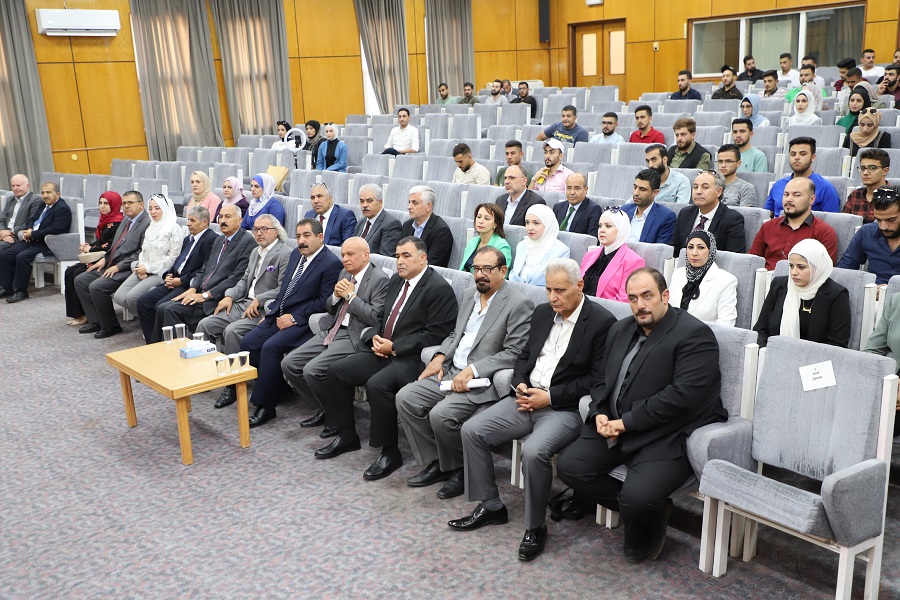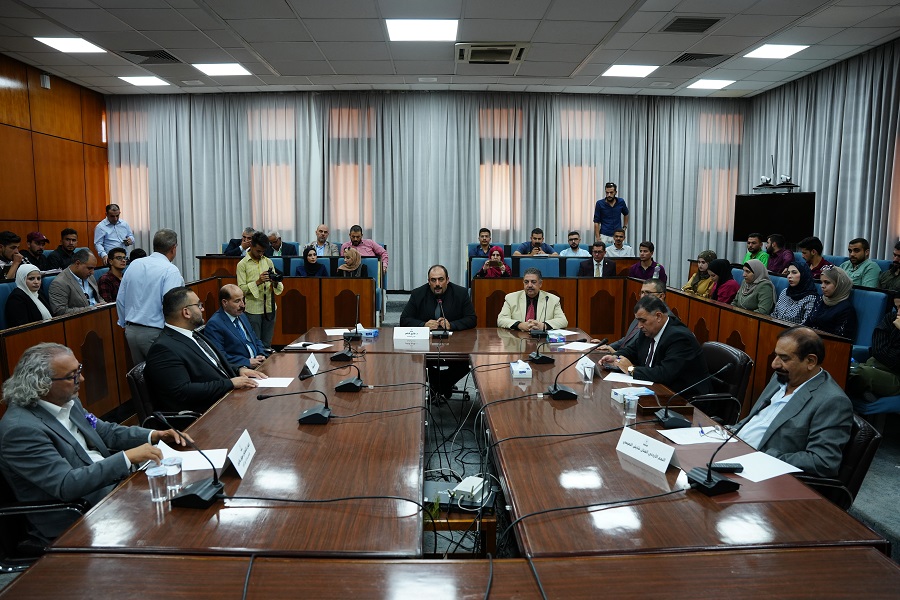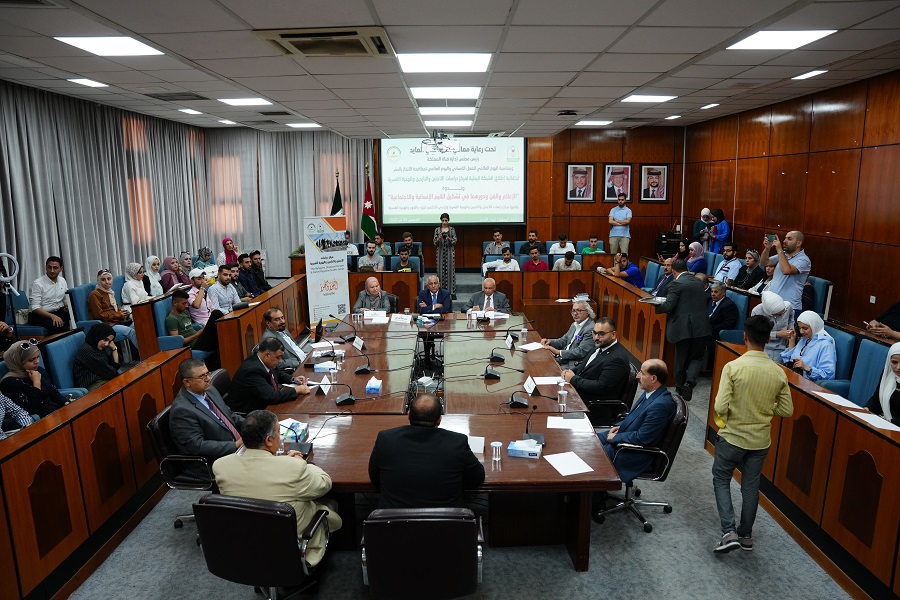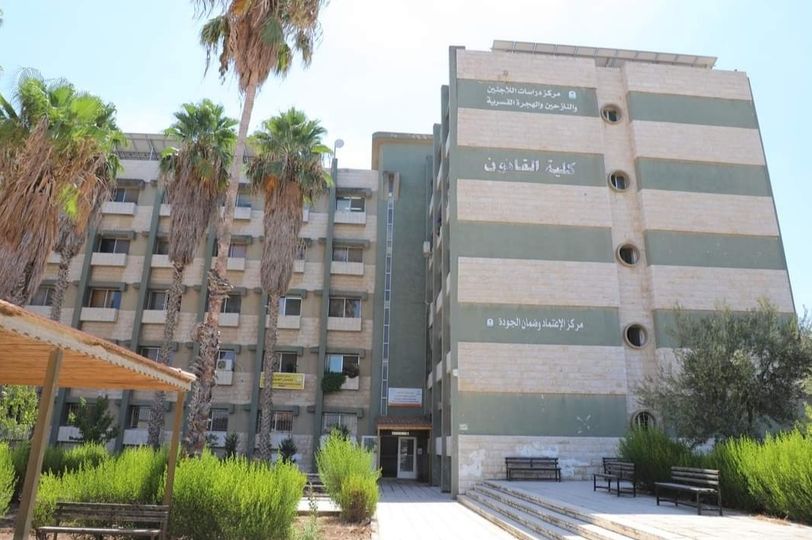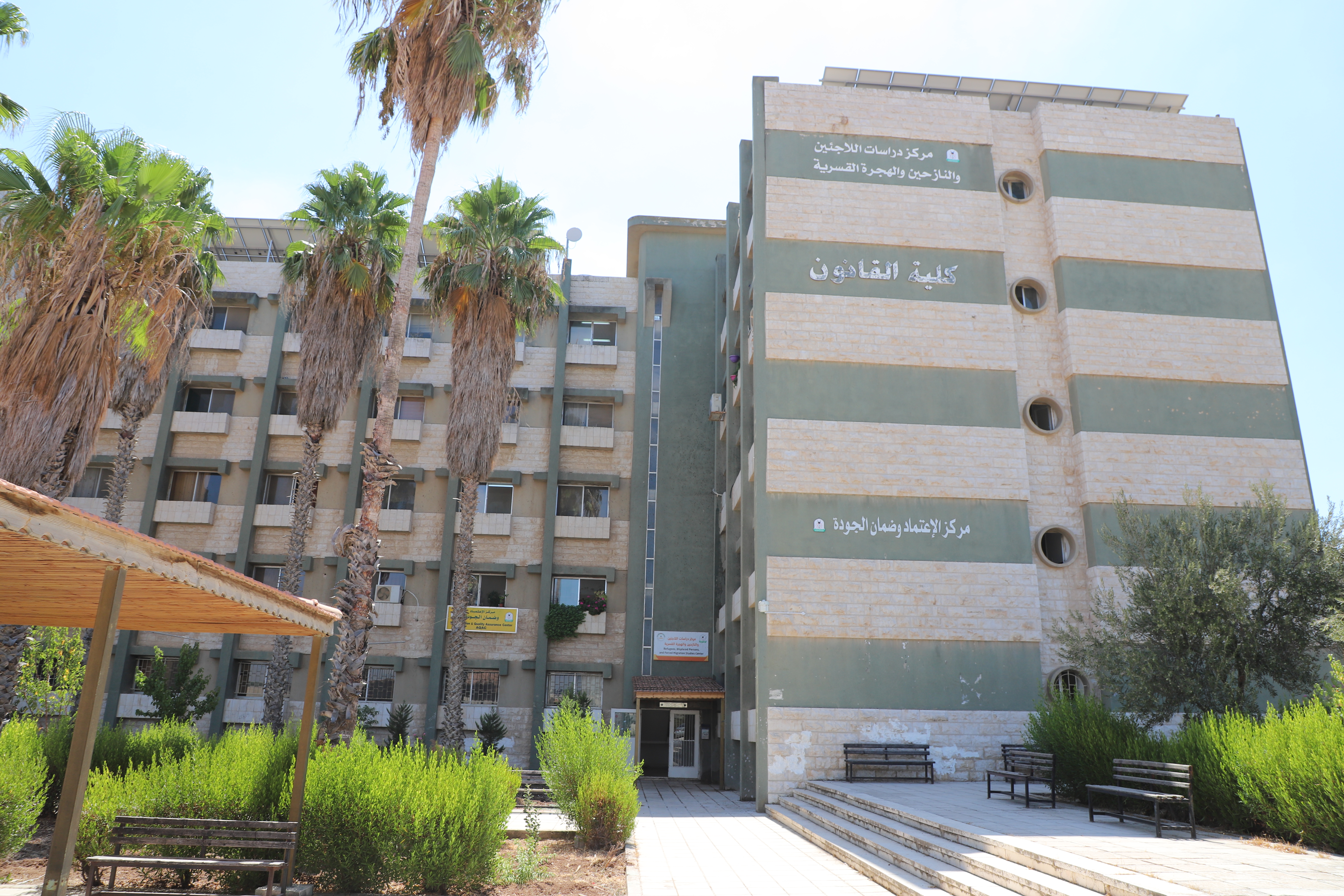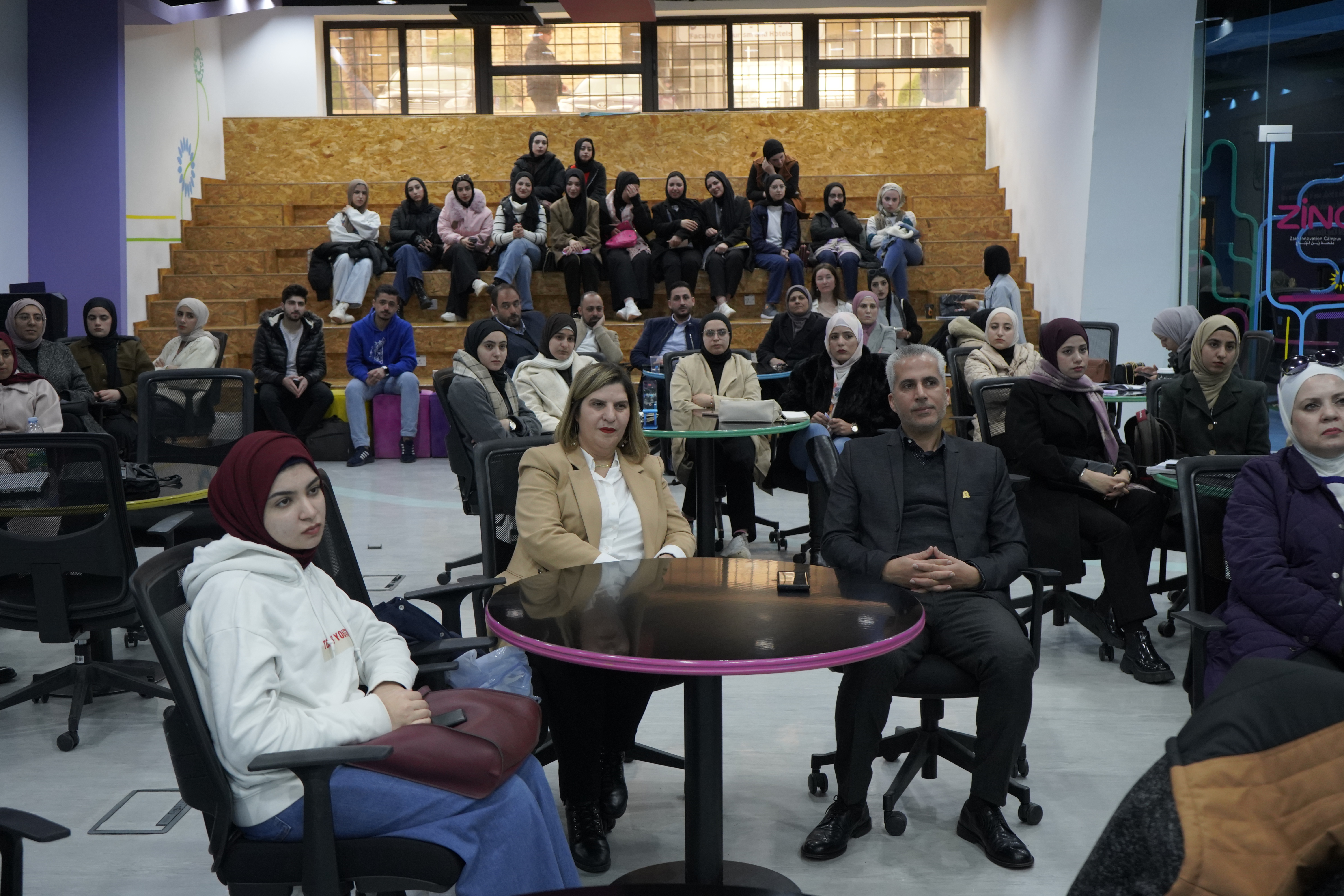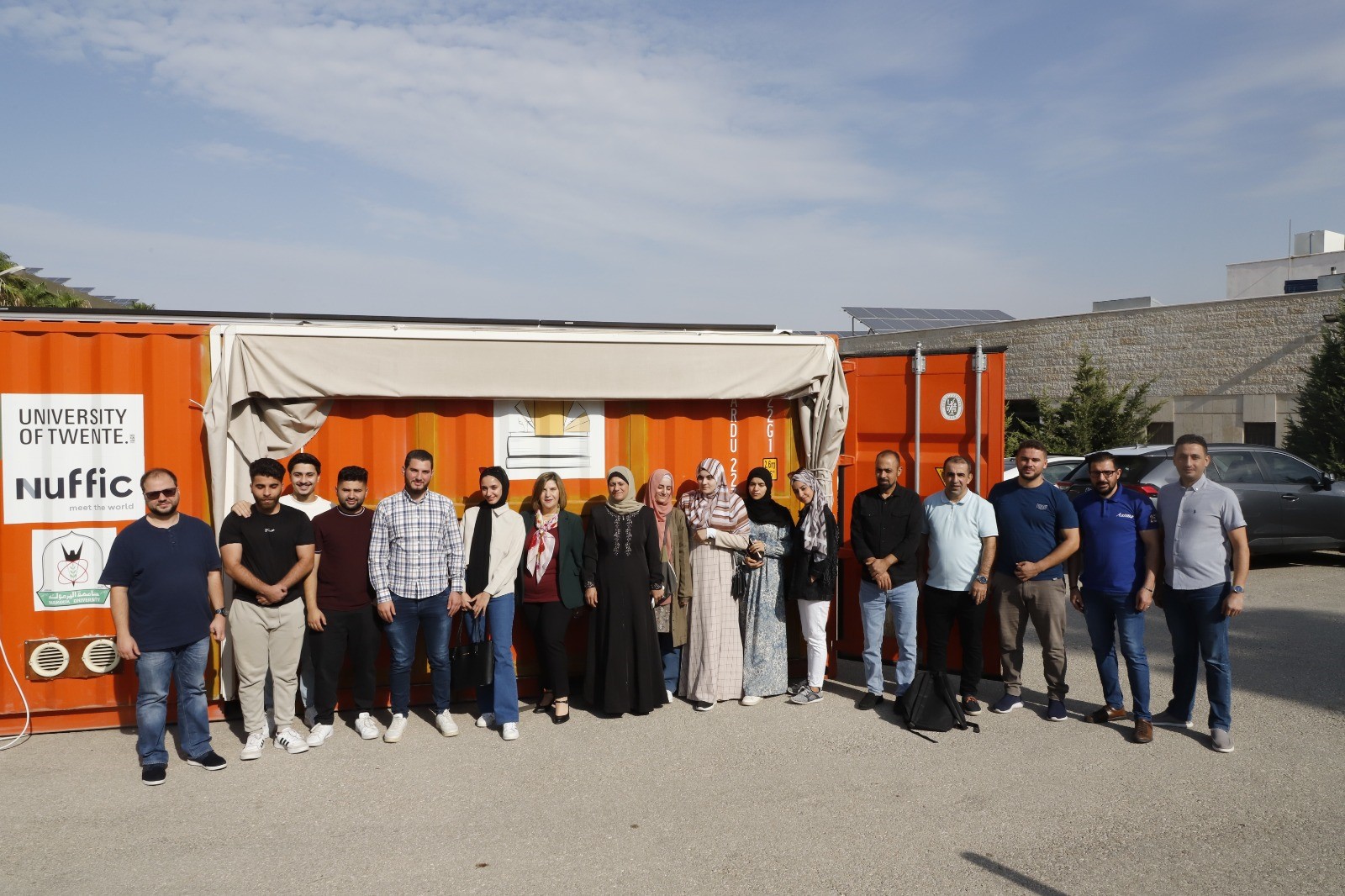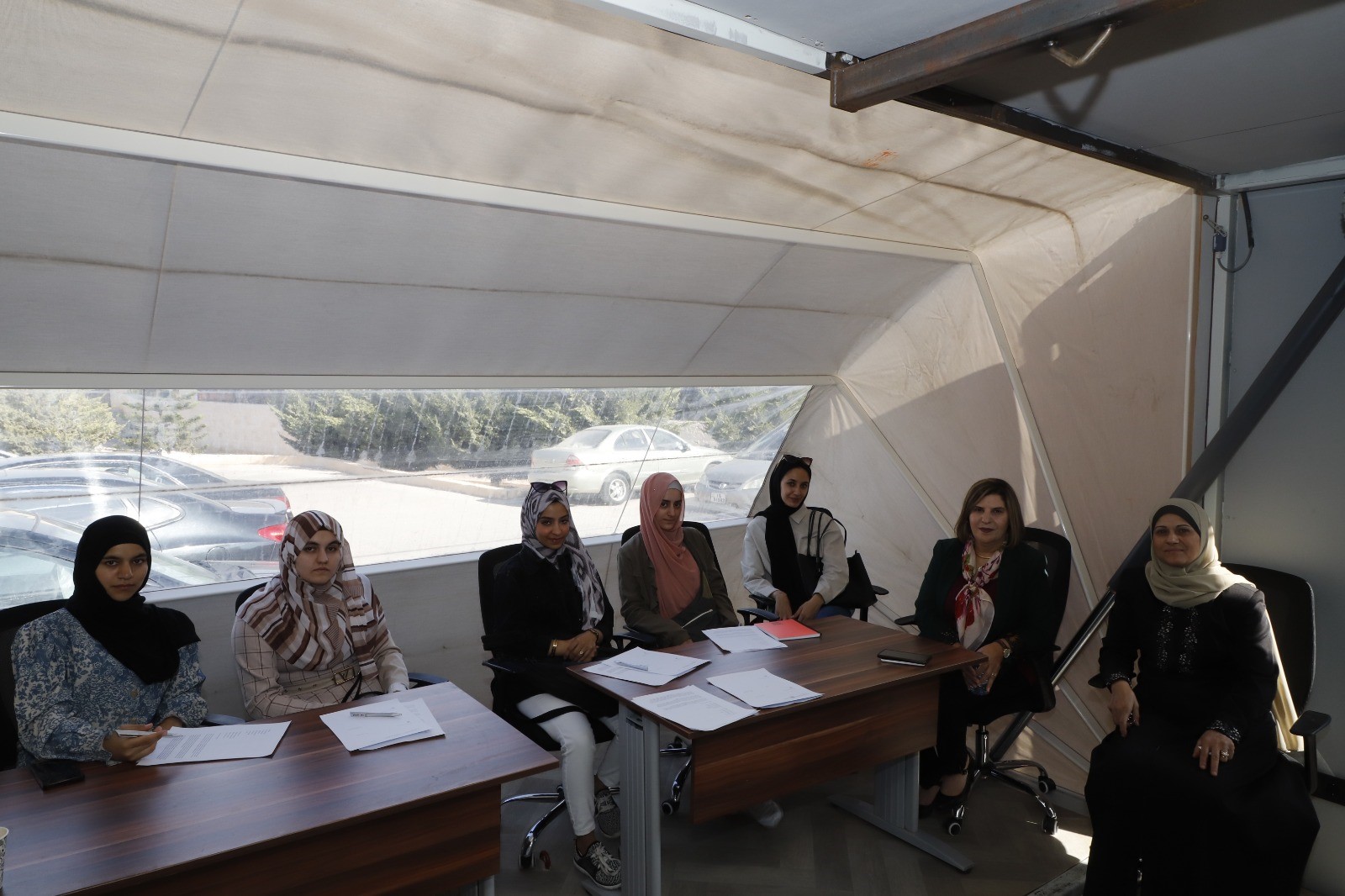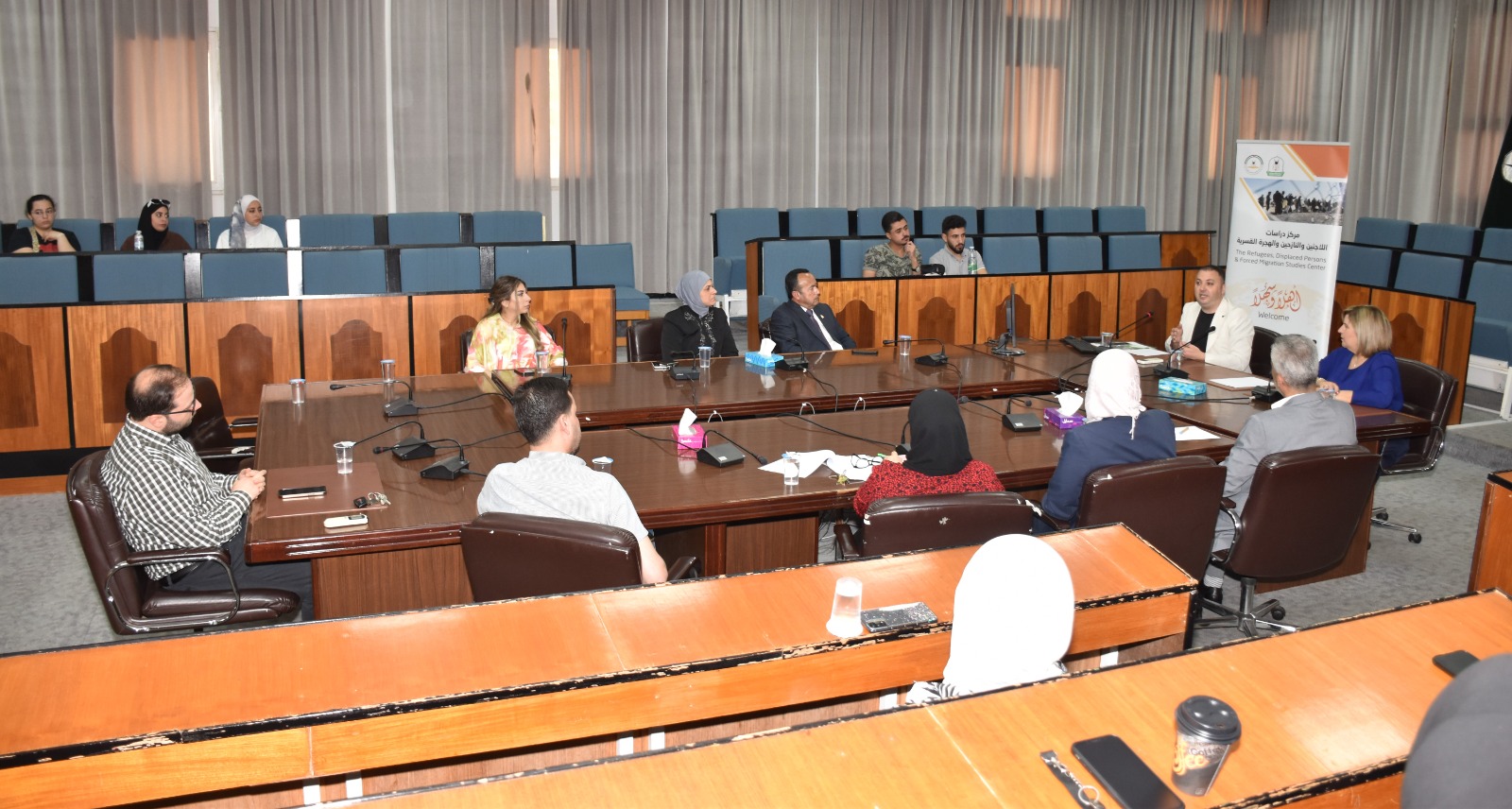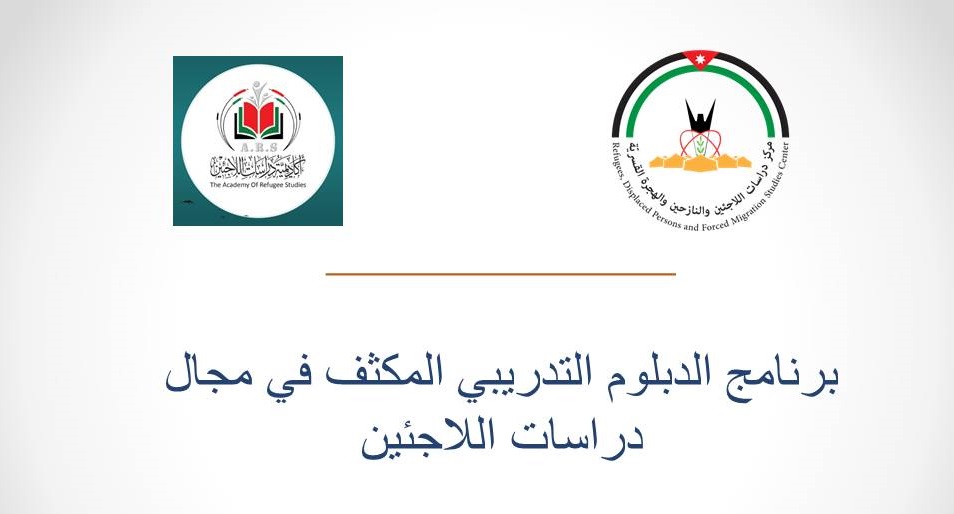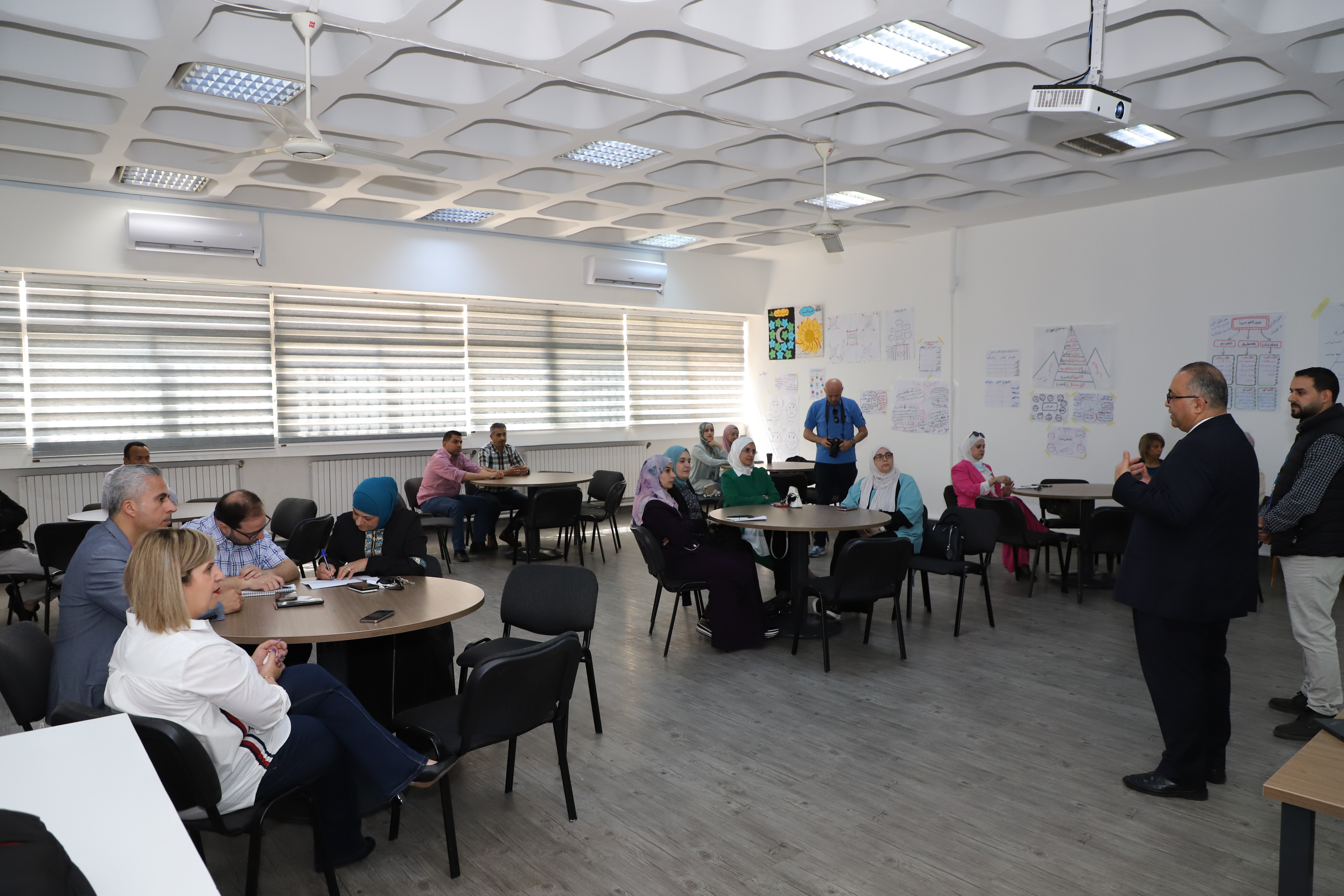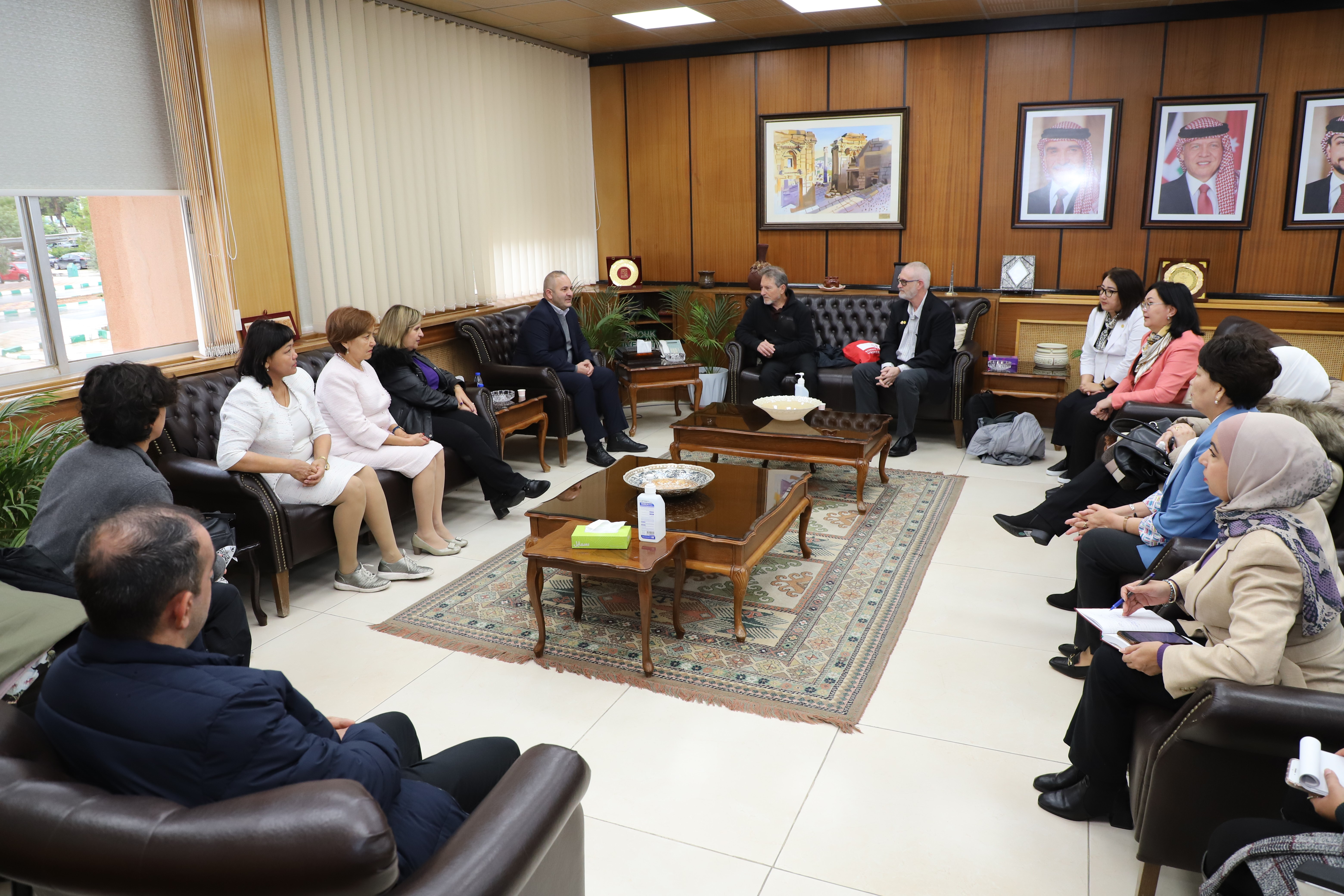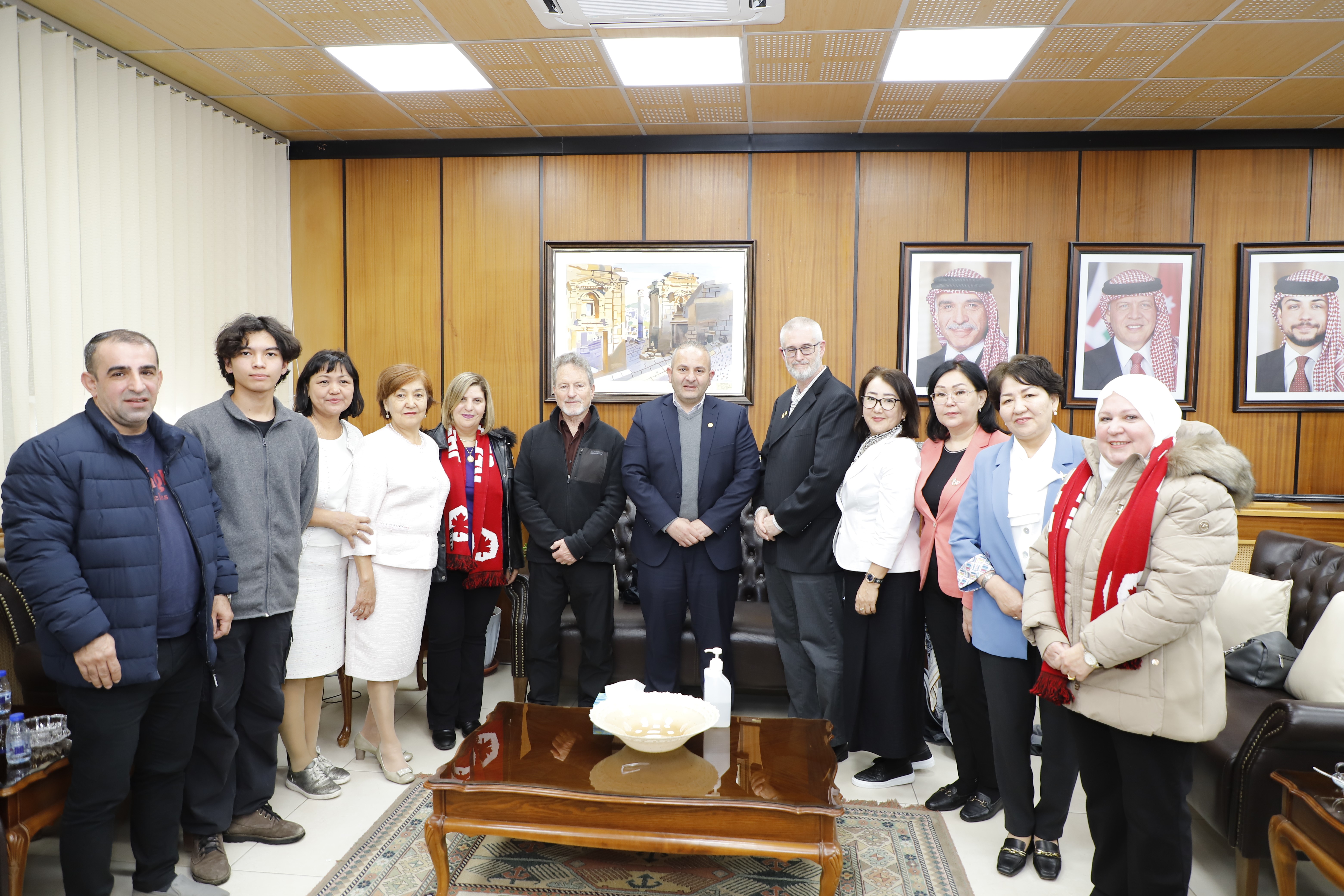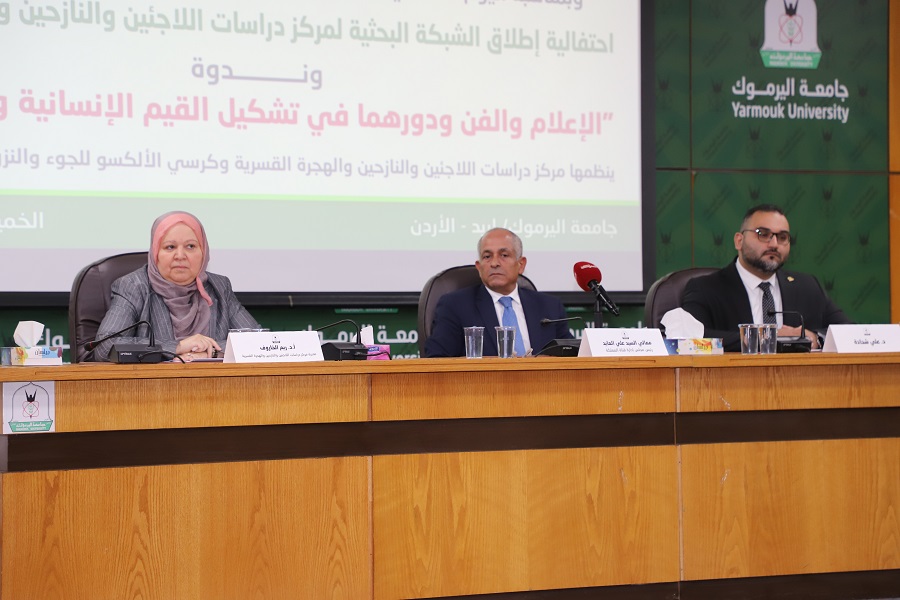
The Chairman of the Board of Directors of Almamlaka Channel, Ali Al-Ayed sponsored the launch ceremony of the research network of the Refugees, Displaced Persons and Forced Migration Studies Center at Yarmouk University, and the symposium "Media and Art and their Roles in Shaping Human and Social Values". These events are organized by the Refugees, Displaced Persons and Forced Migration Studies center, and the ALECSO Chair for Asylum, Displacement, Migration and Forced Migration. They were done on the occasion of World Humanitarian Day and the World Day against Human Trafficking, in the presence of the Assistant President of the University Dr. Ziad Al-Zureikat.
The symposium was attended by the Chairman of the National Steering Committee, Media and Culture in the House of Representatives, MP Yasar Khasawneh, the Editor-in-Chief of Al-Rai newspaper, Dr. Khalid Al-Shaqran, the artist Shaish Al-Nuaimi, and the founder of the “Fragrance of Color” Initiative, the visual artist Suhail Beka'in.
Al-Ayed said that Yarmouk University is a great Jordanian academic edifice that constitutes for all Jordanians a precious national value. It is not only the second university in terms of establishment. It is one of the Jordanian scientific institutions that graduated tens of thousands of young people and knights of our homeland who are working in positions of responsibility and national work in various sectors.
He continued: I am here with you today to share together and to launch a national research nucleus concerned with geopolitical issues, most notably: asylum and migration. He pointed out that this network provides a nucleus of renewed original research for decision-makers at the national and international levels. It contributes to the development and improvement of work, and to rational decision-making based on knowledge, information and social research.
Al-Ayed praised the efforts of Yarmouk University, which initiated the establishment of the Refugee Center. It is the leader in the establishment of the Department of Fine Arts and the Department of Journalism and Media. He pointed out that the topic of today's symposium answers a key question about the roles that art and media can play towards human and social values.
He stressed that Jordan today is in dire need of emphasizing the balanced values that are maintained by our society. Especially since our wise Hashemite leadership has made the human being the title of the Jordanian tender process. So, Jordan's doors were opened to all those whose livelihoods have narrowed in their homeland. The dignity of the human being was the basis in dealing with everyone who chose Jordan as a place to live, seeking life, security and safety regardless of their nationality, color or race.
Al-Ayed pointed out that we are celebrating World Humanitarian Day and the World Day against Human Trafficking, which gives us opportunities to recall the great effort exerted by our armed forces, security agencies and various institutions of the homeland. It is also an opportunity to highly appreciate Nishama and Nashmiyat (male and female Jordanian) who carry the royal directives in their eyes in study, research and work.
He pointed out that our national media has provided and still provides everything it can to serve our humanitarian and societal causes because the media, arts, culture, and social studies, in their various forms, are the title of society and the face of its truth, which are two sides of the same coin and indivisible one.
The Director of the Center, Dr. Reem Al-Kharouf, welcomed the participants in the activities of the celebration of World Humanitarian Day and the World Day against Human Trafficking which comes under the title "Media and art and their roles in shaping our human and social values”, in addition to the launch of the research network at the Center, and how scientific research can advance this humanitarian role not only towards refugees but towards everyone who needs humanitarian and social support.
Al-Kharouf pointed out that the idea of the research network was a real solution to the lack of qualitative scientific production in the field of asylum and migration, the lack of a peer-reviewed scientific journal in this field, and the weak marketing of these qualitative scientific competencies among those who are interested in this type of research. So that, they turn into real partnerships which we build through it the research needed by the local and international decision-maker to understand the reality and issues of asylum and how to deal with it.
Al-Kharouf continued: This network was one of several steps related to the strategic plan at the Center for Refugee Studies. the center identified the objectives and then the research priorities, the partners in this field and other step that all contributed to the birth of this network. She pointed out that the network today embraces about a hundred researchers from various disciplines of the university, where it began to carry out research, surveys and assess the need of research in the light of research priorities and reading the reality of society.
She stressed the interest of Yarmouk University in supporting the media and art sectors, hence the title of the seminar. It brings together a real elite of the people of the homeland who have a distinctive role in this field to exchange opinion and specialized knowledge, and to convey a message that we believe in and trust in its importance, which is that the media is the voice of values and the arts are its image.
Dr. Ali Shehadeh delivered a speech on behalf of the research network members. He stressed that this network strives to generate and mobilize knowledge among academics, decision makers and asylum policy makers to provide the best services and support to those who have been forcibly displaced.
He pointed out that its aim is to build an integrated network to strengthen links in all areas of refugee and forced migration studies, including facilitating interactions between academic sectors, decision makers and stakeholders who are funded locally, regionally and globally, and creating spaces to showcase and disseminate experiences and provide consultations within common interests. All these should be used to support refugees and their causes at all levels and areas.
Shehadeh stressed the need for unified efforts from different disciplines to be able together to achieve better results and to promote best practices and their application at the research, field, policy-making and strategic plans level, especially in the planning, implementation, management and monitoring of projects and the mobilization of the required external support in line with the Center's strategic plans and national priorities with regard to asylum issues.
The activities of the symposium included a session moderated by the Head of the Studies and Research Department at the Center, Dr. Tarek Al-Nasser, and attended by members of the research network, a number of faculty members, and a group of university students
